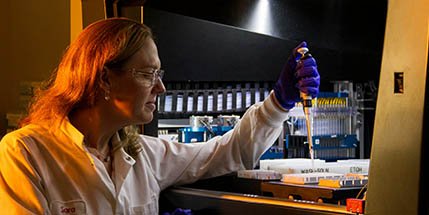Top High-Paying Biotechnology Jobs
Understanding the financial prospects in biotechnology can help guide career decisions. Below is a comprehensive list of some of the highest paying jobs within the biotechnology industry. Each role includes a brief description of its responsibilities and the average salary range. This information is presented in a table format for clarity and ease of reference.
| Job Title | Job Description | Salary Range |
|---|---|---|
| Biotech Research Scientist | Biotech Research Scientists are responsible for conducting experiments and research to develop new products and technologies in the field of biotechnology. They often work in laboratories and collaborate with other scientists. | $80,000 – $150,000 |
| Clinical Research Manager | Clinical Research Managers oversee clinical trials and research projects, ensuring compliance with regulatory standards and protocols. They manage teams of researchers and coordinate with other departments to achieve project goals. | $90,000 – $140,000 |
| Biostatistician | Biostatisticians apply statistical techniques to analyze and interpret data from biological research. They play a crucial role in designing studies, managing data, and drawing meaningful conclusions from research findings. | $75,000 – $130,000 |
| Biomedical Engineer | Biomedical Engineers combine principles of engineering and biological sciences to create medical devices, equipment, and software. They work on developing innovative solutions to improve patient care and healthcare delivery. | $70,000 – $120,000 |
These roles not only offer lucrative salaries but also provide opportunities to contribute to groundbreaking advancements in biotechnology. Whether interested in research, clinical trials, data analysis, or engineering, the biotechnology field offers diverse and rewarding career paths.

Factors Influencing Biotechnology Salaries
The biotechnology sector is a dynamic and multifaceted industry where salaries can vary significantly based on several critical factors. One of the primary determinants of salary levels in biotechnology is educational qualifications. Individuals with advanced degrees such as a Master’s or Ph.D. generally command higher salaries compared to those with only a bachelor’s degree. For instance, a biotechnologist with a Ph.D. in molecular biology is likely to earn a higher salary than a counterpart with a Bachelor’s degree in the same field.
Years of experience also play a significant role in determining salary. More experienced professionals tend to earn higher wages due to their proven track record and accumulated expertise. For example, a senior biotechnologist with over ten years of experience in genetic engineering will typically receive a more substantial compensation package compared to an entry-level technician.
Geographic location is another pivotal factor influencing salaries in the biotechnology industry. Regions with a high concentration of biotech companies, such as the San Francisco Bay Area or Boston, often offer higher salaries to attract top talent. Conversely, areas with fewer biotech firms may offer lower compensation due to reduced competition and demand for skilled professionals.
The specific industry or company within biotechnology can also impact salary levels. Pharmaceutical companies, for example, may offer higher salaries compared to agricultural biotechnology firms or academic institutions. Additionally, market demand for certain specialized skills can drive up salaries. For instance, expertise in CRISPR technology or bioinformatics is currently in high demand, often leading to higher compensation for professionals in these niches.
Certifications and specialized skills further enhance salary potential. Holding certifications in regulatory affairs or clinical research can distinguish candidates and justify higher wages. Similarly, proficiency in cutting-edge technologies or methodologies can result in premium pay due to the specialized knowledge required.
Lastly, the level of innovation in a particular biotech field can significantly affect compensation. Fields experiencing rapid advancements and breakthroughs, such as personalized medicine or synthetic biology, often offer higher salaries to attract and retain top-tier talent capable of driving innovation.

















[…] Stage 1: Egg – The Beginning of Life […]